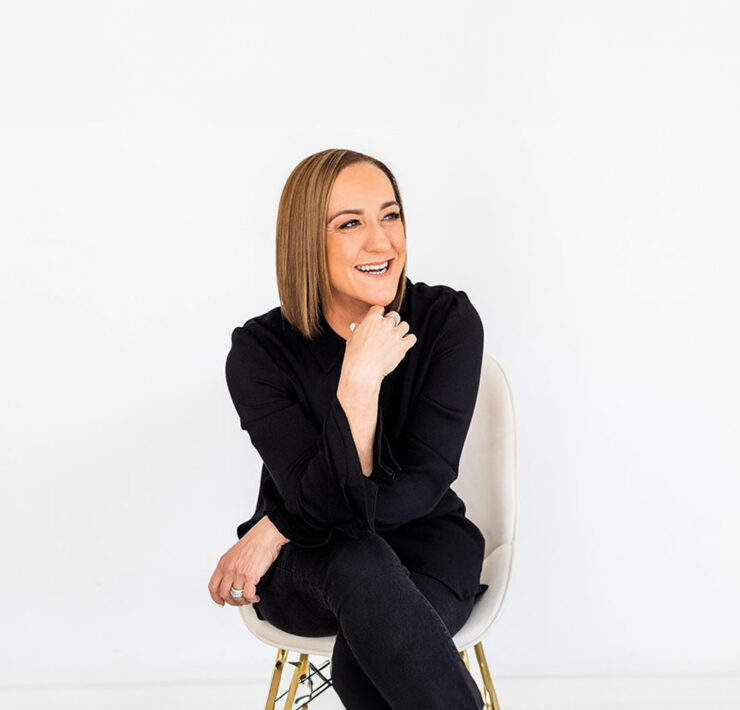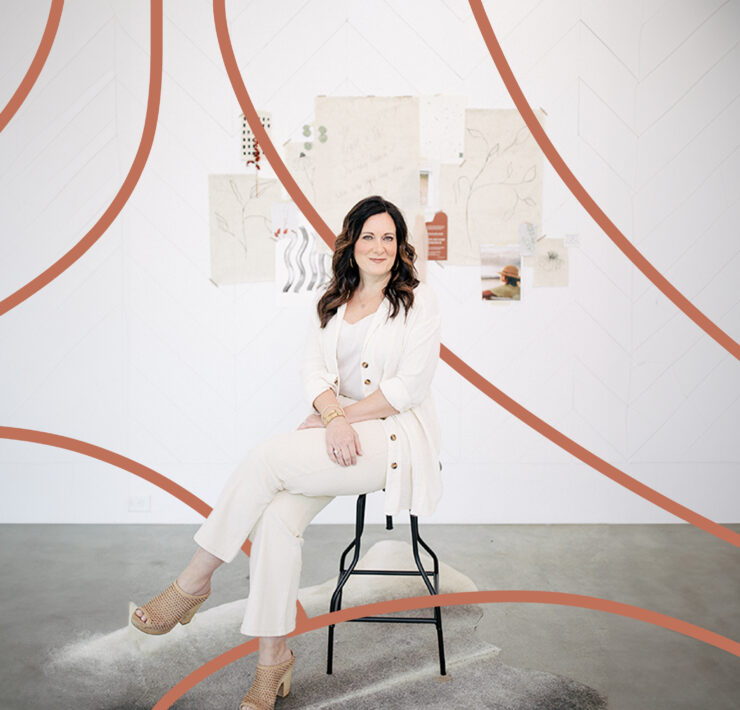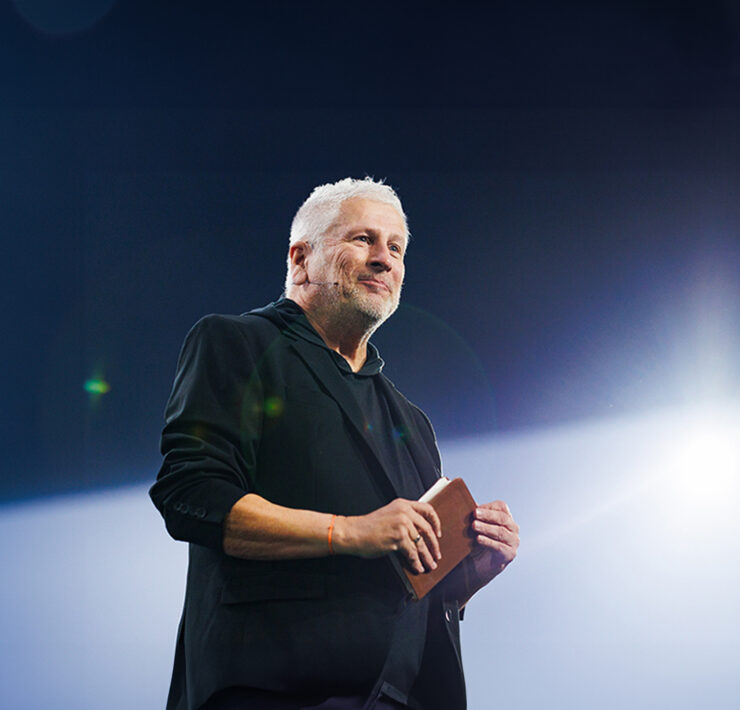Perfect. Reckless. Infinite. Unconditional. All these words and a million more are used to describe the love God. And each way is correct. God’s love is perfectly reckless and infinitely unconditional. It’s hard to sum it up in just a few words.
But there’s a facet of God’s love that author and speaker Lisa Bevere wants believers to take a closer look at: the fierce love of God. In her book Fiercely Loved, Bevere dives into God’s thoughts about His children. She explores how God is not passive in His love, but is rather wholly present and pursuing.
We sat down with her to chat about God’s fierce love and why sometimes it feels too good to be true.
This conversation has been edited for length and clarity.
RELEVANT: There’s a lot of different ways we can describe God’s love, so why do you see it as fierce?
LISA BEVERE: I think most people feel fiercely judged. I also think that it’s become white noise. People think, “Oh yeah, I know God loves me,” but they haven’t experienced it and they don’t have an understanding that God is love. I have love for my grandkids and if anybody tried to hurt them, they would see the fierce Sicilian side of me. But God is so much more engaged, involved, aware. I just feel like we’ve become sterile and tame with the love of God.
There seems to be two things going on: either people are afraid to receive His love and they live in this shame and guilt and think, “I’m going to earn that love” — but you can’t earn what was given. You have this detachment from it. Then you’ve got the other thing where “God loves me, I can do whatever the heck I want. I can live however I want. I can speak however I want.” It feels like we need to have a connection with this God who is love, but He’s also a consuming fire.
You bring up a great point that a lot of times people can miss out on God’s love because they think it’s supposed to look a certain way. How can we be sure that we have a correct view of what God’s love is supposed to look like?
I think our first interaction with it is very different from our interaction with our parents. I grew up with a 100% Sicilian mother, so that probably can tell you a whole lot without even having to describe it. I remember right before John and I got married, I was having a really hard time opening up my heart. I remember somebody saying to me, “God’s love is unconditional,” and it broke me at such a deep level. I actually had no idea how much I had constantly experienced conditional love. In the Church, there’s so many ways that we’re doing things right. But if we don’t get the love of God right, it undermines everything. So when we have a revelation that God loves us, basically in spite of us, then that changes everything.
Most people think that God is thinking thoughts of disappointment. Thoughts of you’re going to just mess up again today. Thoughts of if you do this again, you’re under a rock pile. And yet David had such a revelation of a God whose thoughts towards us were thoughts of good, thoughts of hope, thoughts of plans, thoughts of future. Then he went on to say, “How good and treasured and precious are your thoughts about me, oh God.” He said, “If I could number them.”
I was recently at the beach. I’m expecting my sixth grandchild and I’ve got one granddaughter that is, I mean, she’s a piece of work. I’m just going to say it. It’s so fun that I’m not raising her. I get to enjoy it. She’s sweet, but she’s naughty and she’s super fierce, super engaged with everything that she’s doing. She was trying to build a sand castle, and when you’re building a sand castle, I forgot how important it is to have the right ratio of sand to water. She kept flipping it over and it was heavy, she was having a hard time flipping it. I watched her and I began to think about just the amount of sand in that bucket. If God was actually thinking about me that much, I couldn’t even number those grains of sand and yet it wasn’t that bucket full of sand, it was all the sand on that beach as far as I could see. God’s thoughts towards us, they’re good, they’re enumerable. Then David said, “And when I wake, you are still there with me,” so they’re constant.
But yet we are constantly thinking that he is thinking harm, that he is thinking judgment. I think God loves us into a place of wholeness. He doesn’t shame us into a place of wholeness. He doesn’t judge us into a place of wholeness. Now that doesn’t mean there’s not consequences. When my kids were little, I loved them as their parent, which meant there were consequences, not judgment, consequences. They know there’s cause and effect.
I think sometimes because we had parents maybe that didn’t raise us with discipline, they raised us with punishment, that we’ve gotten really confused that if there’s a consequence, we think we’re not loved. For me, fierce love is about consuming the things that would unmake me and making me into the image of who God created me to be. He’s going to go after those fears of my life. He’s going to go after the labels. He’s going to go after the limitations.
How do you think comparison affects our understanding of God’s love for us?
Well, first and foremost, Paul’s the one that said “I do not dare to compare.” Comparison will either make you feel proud like “I’m so much better. We’re going to be Pharisees, oh, I’m so glad. I’m not like him. I’m not like her. I’m doing better than them.” Or it’s going to isolate us with insecurity. What I have found with comparison is it will always push us on the outside looking in.
When I travel and speak, I use this silly example. I talk about going on a date with your husband and on the date, you’re happy, you’re so excited. You’re finally escaping the kids, you’re going to a movie. Then somewhere along the movie storyline, you watch it as the fake husband kisses the fake wife and you think, “When was the last time my husband kissed me like that? He never kisses me like that anymore.” And you start pulling away during the movie, you’re angry. You’re leaving the movie theater and you’re a little bit cold shouldering your husband. He’s like, “What’s going on?” You’re like, “You know what’s going on, you know.” He’s like, “No, I have no idea that you were comparing me to that actor. I had no idea that you were thinking, ‘Why doesn’t my husband act like that?'”
Theodore Roosevelt said it the best: “Comparison is a thief of joy.” So when I see something that someone else has, and I imagine that it has been deducted for me, I’m never going to be happy for them. But if I see, “hey, I love the way that couple is loving each other,” or “I love the way that person is being promoted,” or “I love the way that woman has found who she really is,” if I celebrate that, then I get to be part of it. If I demean it, compare it, get angry about it, God’s like, “Baby girl, I’m going to have to bench you for a while until you figure this out.” What we have done is we have looked to other people to define us and really only our creator has the right to define us.
It’s funny, but it’s true, I’m 62 and I still get invited to do youth conferences. I think they’re like, “We just need to throw a grandmother in here.” Occasionally I just get to be the token grandmother. I love that Gen Zs and Millennials actually know that God has his hand on their life for something significant. They’ll come up and say that to me and I’ll say, “I totally, 100% believe that.” But then they’ll say, “I have no idea what it is.” I would say that you will never discover what you are called to do looking at everybody else. You discover your calling when you lean in to your creator. I have found that the more I pursue God, the more he reveals me. He doesn’t call me by the names of who I’ve been, He calls me by the names of who I am becoming. The enemy will attack us by who we’ve been, but God will draw us by who we are becoming.
I think the reason why Gen Zs and Millennials don’t know what they’re called to do is because they’re called to do something that has never been done before. When you’re called to do something — something we don’t even have adjectives or adverbs or a noun for yet — when you’re called to do something that has never been done before, you better not waste your time looking at what is being done. You need to lean in. I think it’s just such a beautiful declaration that every single day when I’m laying in my bed and I wake up and I pray to our Father and I say, “Thy kingdom come, thy will be done.” What am I doing? I am declaring something. A kingdom invasion into my world. Something I’ve never seen before, something beyond compare.























